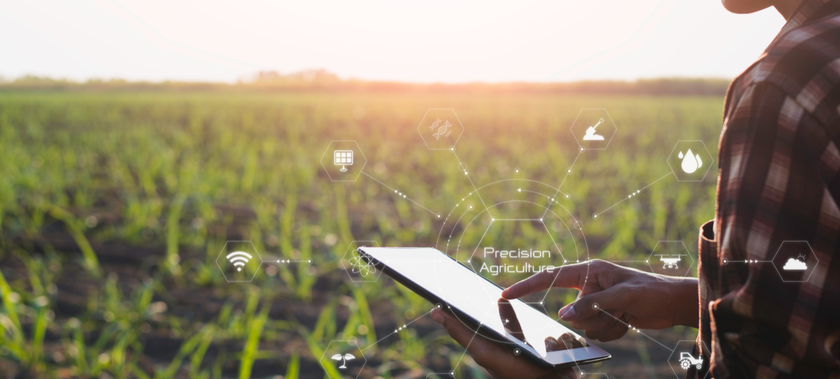FieldAlytics: Advanced Profit-Management for Farms
Growing up with farming backgrounds, Devin Dubois, Wilson Johnston, and Ben Copeland have seen how automation and data have changed crop production and planning. As seeders, sprayers, and combines gather continuous data about yields and fields, agricultural analysts are working with the data to help farmers make better financial and planting decisions. The trio saw an opportunity to create FieldAlytics, a platform with which analysts can use many layers of data to make even better decisions with the farmers.
Most farmers make decisions about what to grow the next year based on the data from an entire field. However, there are some areas in a field that have great returns and others that may not be very healthy. FieldAlytics gathers data such as topography, satellite imagery, temporal records, and sampling soil data systems from all areas of a field to generate reports with actionable advice for better financial returns.
The system also assesses risks and returns, analyzing the unknown variables in production, such as how nitrogen in the soil affects the grains or whether there is too much or not enough water. Copeland explains, “There are four R’s of precision agriculture - the right product and right amount in the right place at the right time. If you are properly informed, that’s your goal in terms of managing production.”
“People were analyzing financial data on a crop by crop, field by field, farm by farm basis, but they weren’t seeing real financial and production gaps because they can’t see a geospatial view,” Dubois shares. “Since the advancement of GPS, you can measure production and capacity over space in combines and other equipment.”
“There are some great analyses that say 25% of seeded acres lose money, but when you do the analysis on the field level, you don’t see that,” Dubois says. “You see that the field generated 10% instead of losing $100/acre, and then you find those areas and manage them differently. You can have double-digit margin changes by changing your analytics.”
FieldAlytics evolved from its initial start as a project called FieldSmart developed by series of John Deere dealerships on the Canadian prairies (Western Sales, Western Tractor and Enns Brothers) nearly ten years ago. Dubois and Johnston then took the service offering independent from the dealerships, and with Copeland's help, have expanded to helping analysts and growers in the Canadian prairies and Quebec. The team aims to expand across Canada in the next five years.
“The groups that we have been working with over the past three years have increased their acres for which they provide professional services, allowing advisors to provide better and more services,” Copeland shares. The trio is also working on developing soil probe sensors that will work with FieldAlytics. Using a combination of sensory technology and machine learning, the probe generates near-instantaneous readings on soil nutrients and soil compounds.
“Despite the advancement of technology, this foundational information is still primarily collected manually and the physical samples must be submitted to a lab for testing, so there is a physical cost, logistical cost, and time lag,” Dubois explains. “Our probes make soil data collection ongoing and accurate.”
The team is working with Dr. Derek Peak, a soil scientist from the University of Saskatchewan’s department of soil science, who continues to work on proving-out the prototype unit.
As their user base grows, Dubois, Johnston, and Copeland plan to stay rooted in Saskatchewan. “We are in the heart of broad-acre agriculture production and our importance in global agriculture is increasing,” Dubois shares. “For a company like ours serving the industry, we’re in the right spot.”


